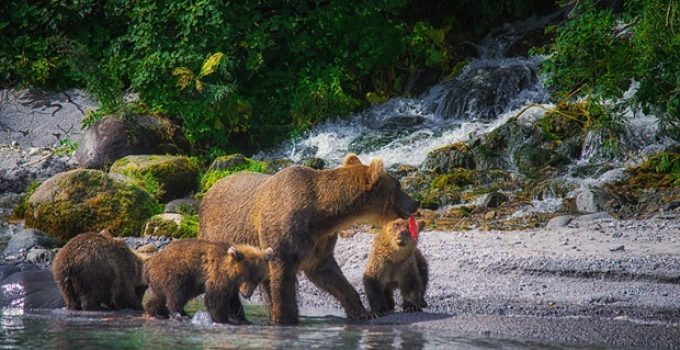What Do You Call a Group of Bears?
The term for a group of bears is a “sloth” or a “sleuth” of bears. While bears are generally solitary animals, these collective nouns have roots in medieval English and persist today in poetic or symbolic contexts. In reality, bears don’t often gather in large groups—unless they’re feeding on a seasonal food source like salmon or berries. This article explores the linguistic history, biological reality, and curious trivia behind what we call a gathering of bears.
Dive Deeper
- Where the Term “Sleuth of Bears” Comes From
- Do Bears Actually Form Groups in Nature?
- Modern Usage: Scientific vs. Literary
- Table: Animal Group Names and Their Meanings
- 🎯 Final Thoughts
- 📚 References
Where the Term “Sleuth of Bears” Comes From
The term “sleuth” of bears originates from The Book of Saint Albans (1486), a Middle English text that cataloged poetic collective nouns for animals.
- “Sleuth” is derived from the Old Norse sloth or sleuth, meaning “trail” or “track” [1].
- It may reflect the quiet, tracking nature of bears in the wild.
- “Sloth of bears” is also historically correct, though it’s used less commonly today.
📜 These terms weren’t based on animal behavior—but rather on literary style and noble hunting traditions of medieval England [2].
Do Bears Actually Form Groups in Nature?
Bears are primarily solitary mammals, with some important exceptions:
- Grizzly and brown bears congregate at salmon runs during seasonal spawning events
- American black bears may tolerate close proximity when food is abundant (e.g., berry patches)
- Mother bears (sows) naturally form temporary family units with cubs
- Polar bears may aggregate on sea ice when food is scarce
However, these gatherings are opportunistic and usually temporary.
🐾 According to the International Association for Bear Research, bears form “seasonal aggregations” but not permanent social groups [3].
Modern Usage: Scientific vs. Literary
In biology and field research, experts usually avoid poetic group terms like “sleuth” or “sloth” because:
- Bears are not truly social animals
- Their interactions are brief and often competitive
- Field reports simply refer to “bears” or describe their number and behavior
That said, the term “sleuth of bears” remains popular in trivia, children’s books, and wildlife tourism materials.
📚 “Sleuth of bears” is listed in the Oxford English Dictionary as a recognized collective noun, but it’s considered archaic in scientific contexts [4].
Table: Animal Group Names and Their Meanings
| Animal | Collective Noun | Origin / Meaning |
|---|---|---|
| Bears | Sleuth or Sloth | Medieval English; poetic hunting term |
| Lions | Pride | Reflects perceived majesty |
| Crows | Murder | Based on superstition and folklore |
| Ravens | Unkindness | Symbolic associations in medieval texts |
| Owls | Parliament | Inspired by their “wise” appearance |
| Baboons | Troop or Congress | Describes chaotic group behavior |
🎯 Final Thoughts
So, what do you call a group of bears? The classic answer is a “sleuth” or “sloth” of bears—but don’t expect to hear a biologist use it in the field.
Key points:
- The term is poetic, not scientific
- Bears are largely solitary, except during feeding or mating seasons
- The phrase has linguistic and cultural value, even if it’s rarely practical
Whether you’re playing trivia, writing a poem, or just curious, the term adds color to our understanding of language and wildlife—even if bears themselves don’t gather for social reasons.
📚 References
- Skeat, W. W. An Etymological Dictionary of the English Language. Oxford University Press, 1910.
https://archive.org/details/etymologicaldict00skea - Hodgkin, R. The Book of Saint Albans. London: Wynkyn de Worde, 1486. Transcription and commentary by Juliet Fleming (2001).
https://www.bl.uk/collection-items/the-boke-of-saint-albans - International Association for Bear Research and Management (IBA). “Bear Behavior and Ecology.” Bearbiology.org, 2023.
https://www.bearbiology.org/knowledge-base/ - Oxford English Dictionary. “Sleuth, n.2.” OED Online, Oxford University Press, 2023.
https://www.oed.com/view/Entry/181740
